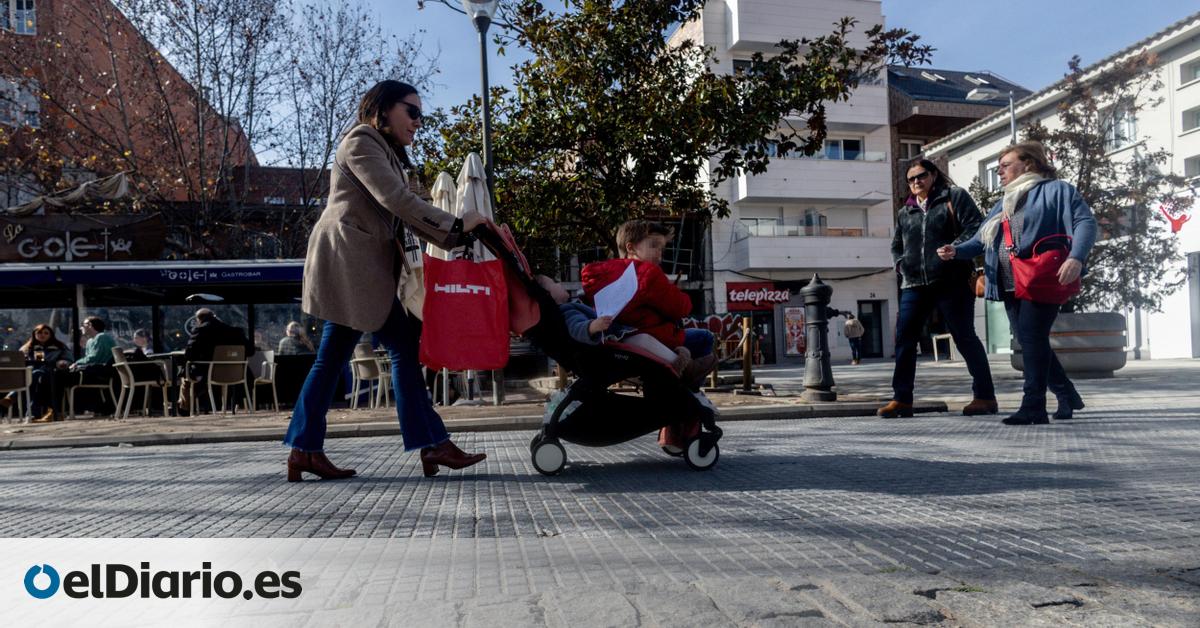
Congress has validated one of the most relevant measures of the social agenda that the Government was pending to carry out after summer: the extension of permits by birth and care of children.
The Executive approved in July, pressed by a fine of Brussels and after an intense pull and loosen among the partners, the Royal Decree Law that extends until 19 weeks – two of them available during the first eight years of life of the child – these paid periods. A time that arrives until 32 weeks in the case of single -parent families. This Tuesday has achieved the majority support of the lower house with 313 votes in favor, 33 abstentions – corresponding to Vox – and none against. In addition, the text will be processed as a bill by agreement of all groups, which will allow changes to be introduced in the coming weeks.
“This measure will benefit almost a million people this year who will have more time to be with their own and less overwhelmed in their lives,” said the second vice president of the Government and Minister of Labor, Yolanda Díaz, during his word shift. In his speech, who has led the negotiations in favor of this extension has assured that it is a “matter of state that transcends the partisan controversy.” “We do not talk only about weeks or precepts, but about the real life of the people,” he had settled.
Unlike with the reduction of the working day, the government faced the vote of this royal decree with some certainty that it would go ahead. And although they have finally given the numbers, most of the investiture members who have supported the validation – Bildu, Junts, ERC and PNV – have done it with some criticisms that reduced Diaz’s intervention: at paid weeks, which are less than the coalition executive had already promised the retroactivity set in the norm, which limits the remunerated permission to the children born to the children born to the children born to the children. of August 2, 2024. The Socialists have embedded the reproach, although “you cannot give up to take another step to upload this mountain,” said Deputy Elisa Garrido.
“They have done an exercise of trileism, they have mixed permits, weeks and months,” the popular group has finally lamented in similar terms to those used by Podemos. Both, however, have ended up supporting the measures. “The European directive is not being fulfilled, we expected 8 weeks and we have three, if we accept octopus as a company animal.” The dwellings flirted, however, a few hours before the vote with refraining from being “insufficient” and launched a hard speech against the government.
The measures contained in the Royal Decree entered into force after publication in the Official State Gazette a month and a half, without waiting for the text to be endorsed in Congress. The Government opted for this procedure to avoid paying a fine that imposed Brussels for the breach of a European directive precisely on part of these permits that should already be adapted to the Spanish order. However, the Court of Justice of the European Union (TJUE) sentenced Spain to pay six million euros. The procedure had begun in 2022.
Although Díaz has assured that the Royal Decree recognizes “five weeks above what is required by the EU in the case of mothers and 17 in the case of fathers”, the extension is at the moment less ambitious than what the Government Agreement between the two formations: 20 weeks of birth permit and four paid for caring for up to eight years. That is, 24 in total. The agreement between adding and PSOE came after months of negotiations and an intensification of the pressure of Yolanda Díaz at the end of the political course. Putting the Royal Decree going will cost 1,500 million euros this year. “It is a first step to take momentum,” said the Minister of Social Rights, Pablo Bustinduy, in statements in the halls of Congress.
How do permits work? What changes and what not
The new decree includes 19 weeks of permission in total for public employees, all employees and autonomous people. They include births, which are extended in a week until 17, and the two paid for the care of children until the age of eight. The law assumes them as a whole that can be taken followed or in parts, but always subject to a series of norms marked in the legal text.
As until now, the first six weeks after birth, adoption or foster care are mandatory and must be enjoyed full -time. From there, each of the parents can distribute another 11 weeks at will, accumulated or interrupted but always within the first 12 months. Nor does this change.
The novelty is two weeks paid for permission for care. These may be taken immediately after birth permission if desired or during the first eight years of the child’s life, in full or partial time. Your enjoyment is much more flexible.
Every week they are the same and non -transferable for both parents (in the event that there are two) and the cost is assumed entirely by social security, not by companies. Workers will receive 100% of the regulatory base, that is, a 100% equivalent benefit of their usual salary although the directive marks that 60% would be sufficient, Diaz stressed.
The most confusing part of the extension was retroactivity. The Royal Decree is recognized since August 2024, which implies that people whose sons and daughters were born from August 2024 may receive this remuneration until they turn eight years old. Not only boys and girls born from the entry into force of the new decree. This threshold has been marked because it coincides with the moment when Spain should have transposed the directive that included these new rights.
The eight weeks without remuneration that already exist will continue to be available to the trabjadoras who want to take advantage of them, but do not give back. They also add to the new weeks those already recognized by breastfeeding to both parents. It is cumulative for three weeks in full days since May 2024 and enjoyable until the baby turns nine months.
Source: www.eldiario.es

